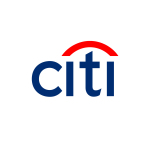LONDON--(BUSINESS WIRE)--Citi today released a Global Perspectives & Solutions (Citi GPS) report titled Philanthropy and the Global Economy v2.0 – Reinventing Giving in Challenging Times. While conflict in Ukraine has catalysed giving globally in 2022, economic headwinds now risk creating a triple squeeze on philanthropic giving as charities face higher costs, more demand for their services, and declining funding. This report looks at ways in which philanthropy can innovate to unlock the funds required to continue supporting its beneficiaries.

The cost-of-living crisis has been seen by many as potentially bigger than COVID-19. This will place additional strain on charitable services that are already stretched from supporting the pandemic recovery. Importantly, elevated demand is affecting not only health charities, but charities across the board. Likewise, a broad cross-section of civil society will likely see demand increase, not only those providing essential goods.
“Philanthropy has many more assets at its disposal than we realise – cash giving is around $550 billion globally each year, but we estimate that investable assets total more than four times this amount globally”, says Andrew Pitt, Head of Research for the Institutional Clients Group at Citi. “Better aligning these investment assets with their mission stands to unlock many more funds that could deliver the positive social impacts that the sector seeks,” he adds.
Yet, while it is larger than we think, philanthropy is still small compared with the overall capital markets. Hence, strategically deploying catalytic capital to mobilise investment capital, and route it towards causes that the non-profit sector seeks to support, is key to unlocking maximum funding. According to some sources, less than 4% of Foundations employed loans, equity investments or impact investments in pursuit of philanthropic goals in recent years.
Beyond unlocking investment assets for social purpose, the report also highlights the need to target a new group of donors, the digital asset givers. Donations in cryptocurrencies skyrocketed in 2021, with some data reporting between a six-fold and 12-fold increase in digital asset donations. The demographic profile of digital asset owners differs from the traditional donor. Digital asset owners are typically younger and male while traditional donors are typically middle-aged and female. This presents an opportunity to grow the stock of philanthropy, and potentially to democratise it globally, if digital asset owners turn some of their funds to giving. However, philanthropy practiced by digital asset owners looks different from traditional donors in terms of causes that are currently being supported, with a very heavy bias to environmental causes.
The emerging field of digital asset giving stands to change the practice of philanthropy, from reducing the requirement for trust between donors and recipients through the use of blockchain, to increasing the transparency of charitable giving. “There is a scope for innovation, beyond receiving crypto and converting to fiat, to use cryptocurrency and underlying technologies across the charitable value chain” says Ronit Ghose, Global Head, Future of Finance, Citi Global Insights. “This may increase the transparency of charitable operations” he adds. One thing is for certain: Foundations and charities need to be digital asset ready.
About Citi Global Perspectives & Solutions (Citi GPS)
As our premier thought-leadership product, Citi Global Perspectives & Solutions (Citi GPS) is designed to help our clients navigate the global economy's most demanding challenges, identify future themes and trends, and help our clients profit in a fast-changing and interconnected world. Citi GPS accesses the best elements of our global conversation and harvests the thought leadership of our research analysts and a wide range of senior professionals across our firm.
About Citi:
Citi, the leading global bank, has approximately 200 million customer accounts and does business in more than 160 countries and jurisdictions. Citi provides consumers, corporations, governments and institutions with a broad range of financial products and services, including consumer banking and credit, corporate and investment banking, securities brokerage, transaction services, and wealth management. Additional information may be found at www.citigroup.com | Twitter: @Citi | www.youtube.com/citi | Blog: http://blog.citigroup.com | Facebook: www.facebook.com/citi | LinkedIn: www.linkedin.com/company/citi
Contacts
Franecsco Meucci – Citi Research franecsco.meucci@citi.com
Susannah Gullette – Citi Research susanna.gullette@citi.com